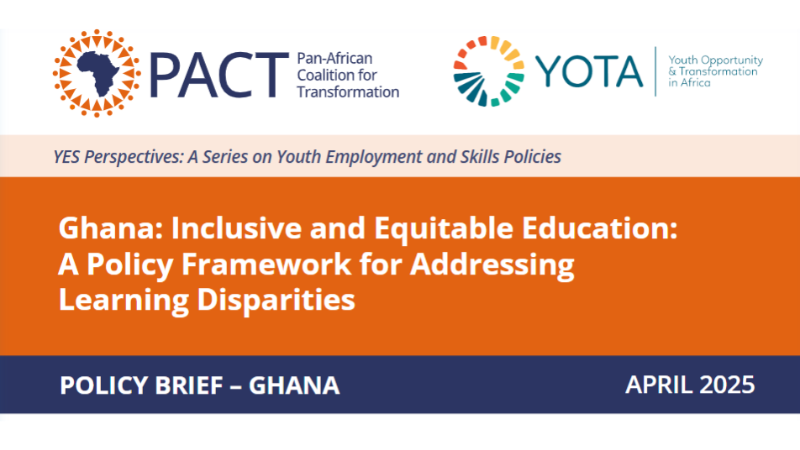
Education is a fundamental human right and a cornerstone for Ghana’s national development, social cohesion, and economic progress. Inclusive and equitable education is crucial for achieving Sustainable Development Goal 4, which calls for ensuring inclusive and equitable quality education and promoting lifelong learning opportunities for all. However, Ghana’s education system faces challenges that hinder its transformative potential.
Ghana has achieved near-universal enrollment at the primary level, but the quality of education often lags. Regional disparities are significant, with the northern regions experiencing lower enrollment, higher dropout rates, and poorer learning outcomes. Disparities also exist across socioeconomic backgrounds and demographics, such as gender and persons with disabilities. While Ghana has implemented several policies aimed at promoting inclusive and equitable education, more work remains.
This policy brief analyzes learning disparities within Ghana’s education system, evaluates the effectiveness of current national policies, identifies key challenges, and proposes a policy framework to foster inclusive and equitable education.


